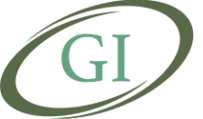Colorectal Cancer Prevention
Colon Cancer Prevention Saves Lives
Colorectal cancer is the third most common cancer in the U.S., killing almost 50,000 people each year. More than 136,000 new patients are diagnosed every year with colon cancer. Los Angeles GI doctor Peyton Berookim, M.D., has devoted his practice to screening and prevention—saving families from the grief and trauma of this devastating disease. Education is the first step in this endeavor.
Know the Risks and When to Get Screened
- Age is the primary risk factor for colorectal cancer. Ninety percent of colon cancers develop after age 50. If you are 50 or older, it’s time for your initial screening.
- African Americans are at higher risk than other ethnic groups and should be screened at a younger age. If you are African American and age 45 or older, schedule your colonoscopy without delay.
- A family history of colon cancer or polyps is an indication of higher risk. If a relative had colon cancer or related bowel disorders, get screened when you are 10 years younger than they were at their diagnosis.
- Inflammatory bowel disorders, obesity, diabetes, smoking, heavy drinking, and other lifestyle factors or health conditions can impact your risk. Talk to Beverly Hills GI doctor Peyton Berookim about when you should have a colonoscopy.
Two Reasons to Feel Comfortable about Colonoscopy
#1: It’s Unlikely That You Will Receive a Frightening Diagnosis
For healthy patients who follow the screening guidelines and have their first colonoscopy at age 50, the chances of being diagnosed with colon cancer during a colonoscopy are low. More than 90% of patients receive a clean bill of health or have precancerous adenomas carefully removed by Dr. Berookim so the polyps don’t become cancerous.
“At a typical screening appointment, the outcome is greater peace of mind for patients and their families. With the use of “third eye” colonoscopy equipment, the rate of adenoma detection goes up an additional 20%. I’ve implemented this advanced equipment at my practice to provide patients even greater assurance that they are cancer-free.” — Dr. Berookim, MD, FACG
#2: Colonoscopy Is Designed to Be as Painless as Possible
Dr. Berookim ensures that you remain as comfortable as possible during the procedure. Conscious sedation relaxes your body and allows you to be awake and responsive throughout your screening. A colonoscopy typically takes less than half an hour for a thorough examination. After this outpatient procedure, you can be driven home to rest. Most people are back to regular activities the next day.
Recognizing Colon Cancer Symptoms
Colorectal cancer often has no warning signs until the disease is in advanced stages. That’s why screening is so critical. If you do experience any of the following symptoms of colon cancer, seek medical evaluation right away:
- Blood in the stool (bright red, black, or very dark)
- Change in bowel habits (diarrhea or constipation)
- Narrow, pencil-thin stools
- Unexplained anemia (low iron in the blood)
- Rectal bleeding
- Unexplained weight loss
- Chronic fatigue
Why You Shouldn’t Wait
It’s true that cancerous changes in the colon usually occur slowly over time. But once cancer has developed, treatment is invasive and survival rates are low. The good news is that most people have the opportunity to catch this disease before it starts—simply by being screened. At the precancerous stage, treatment is much less invasive and highly effective.
Get the leading-edge expertise and heartfelt care you can depend on. Visit Peyton P. Berookim, MD, at Gastroenterology Institute of Southern California in Beverly Hills. Colonoscopy screening appointments are available by calling 310.271.1122 or filling out the online Request an Appointment form.



